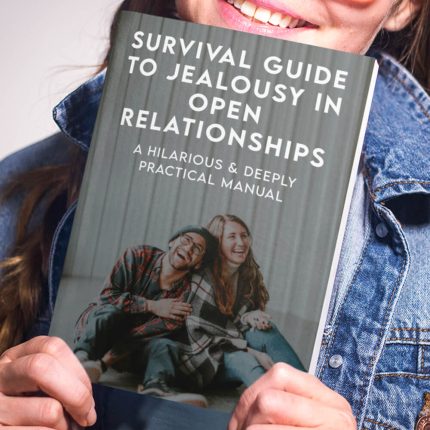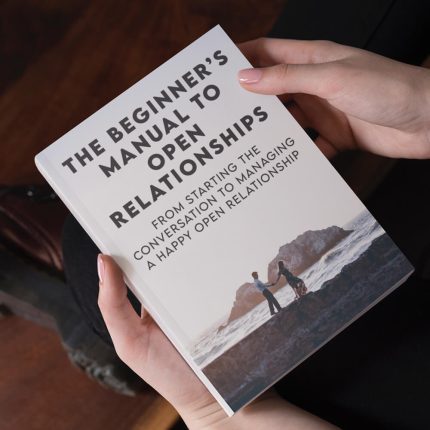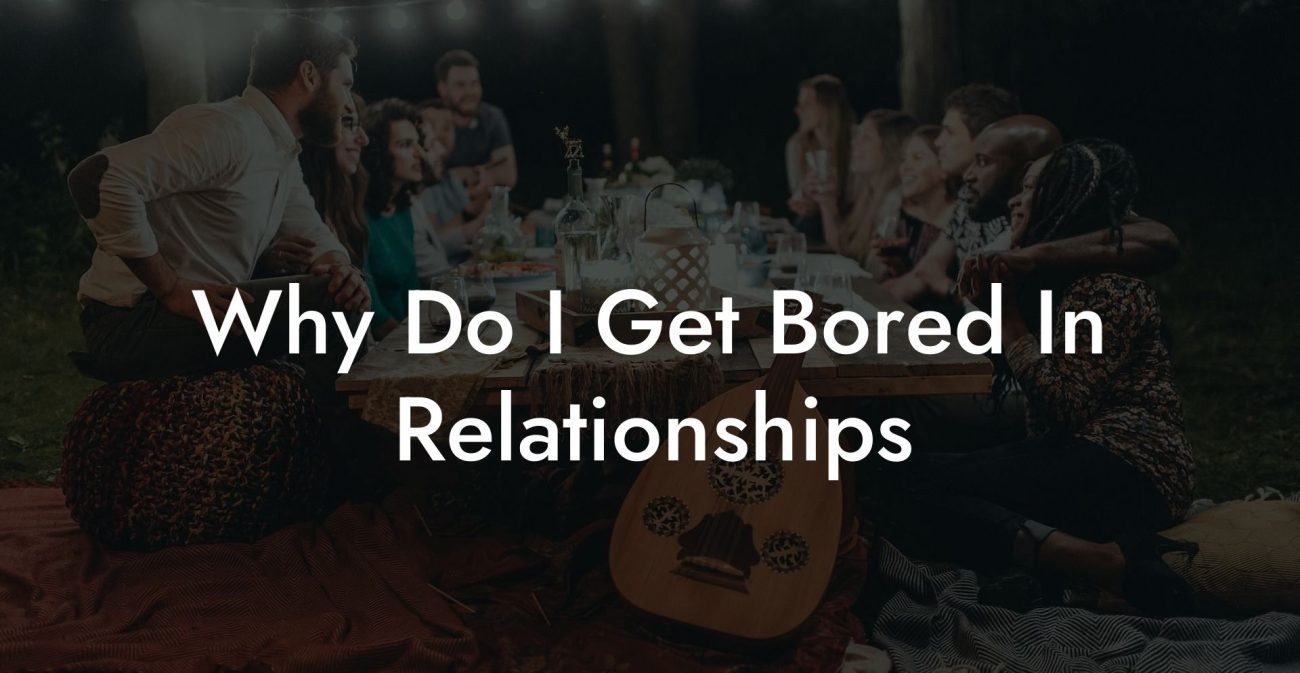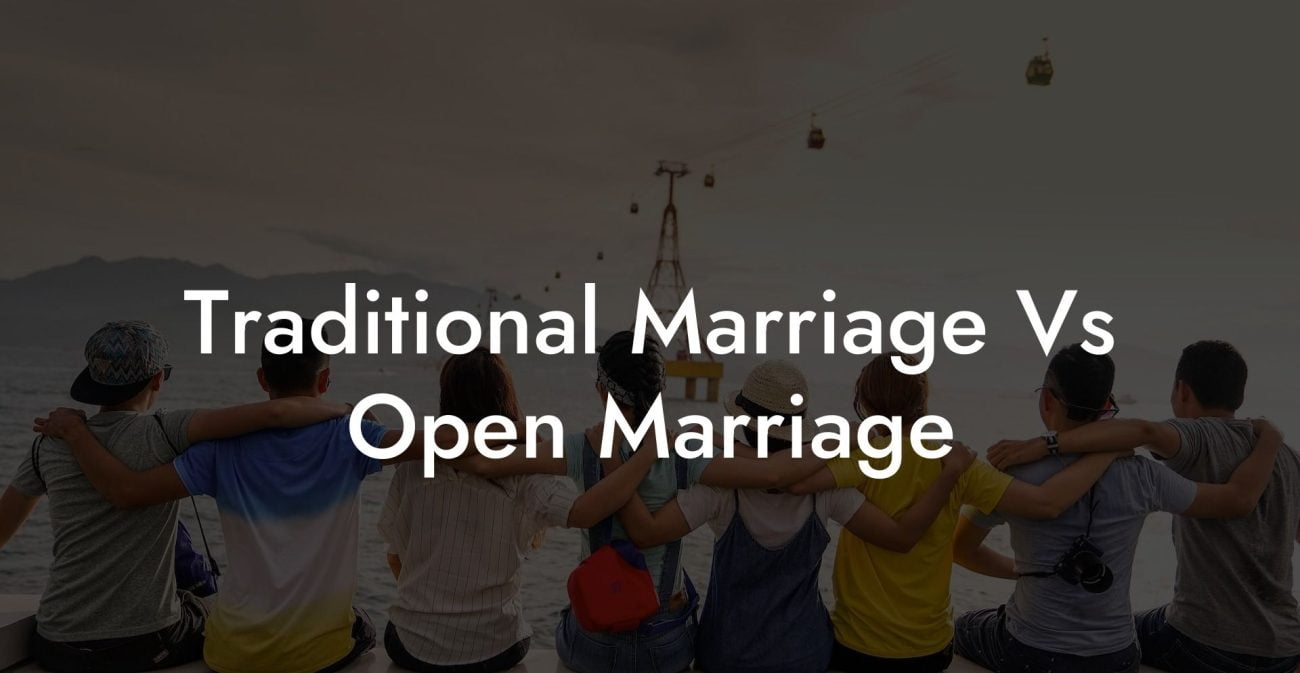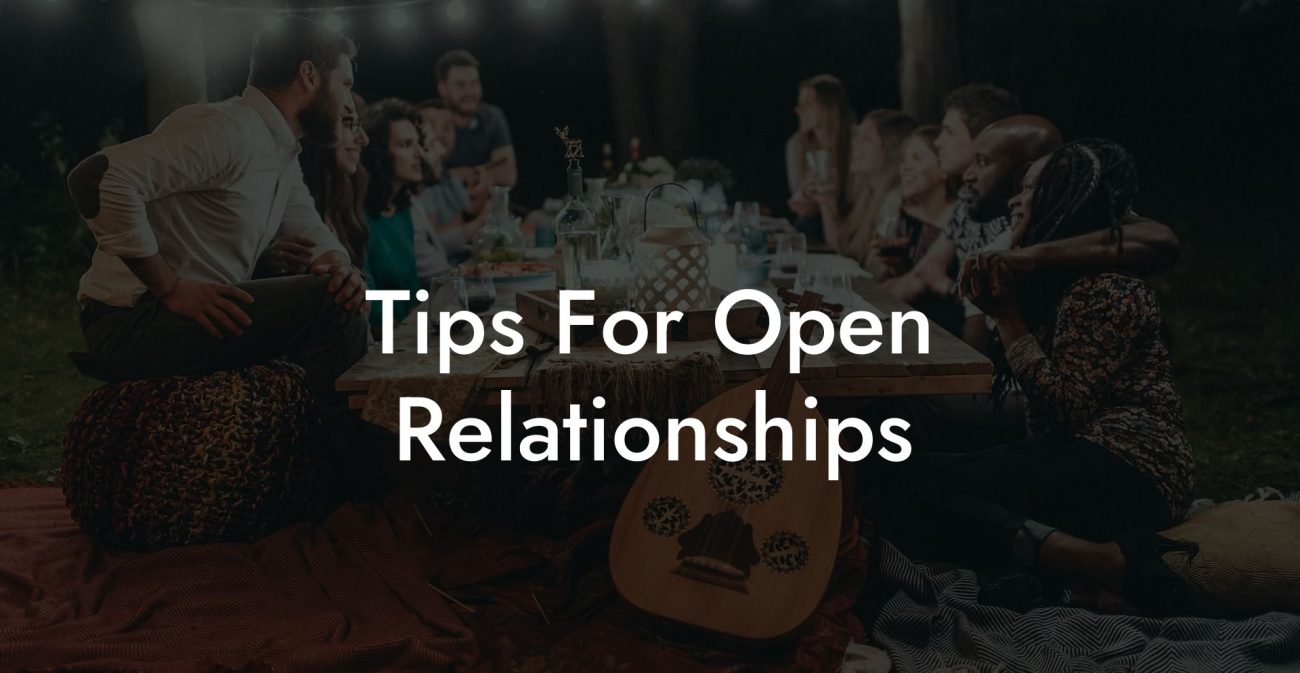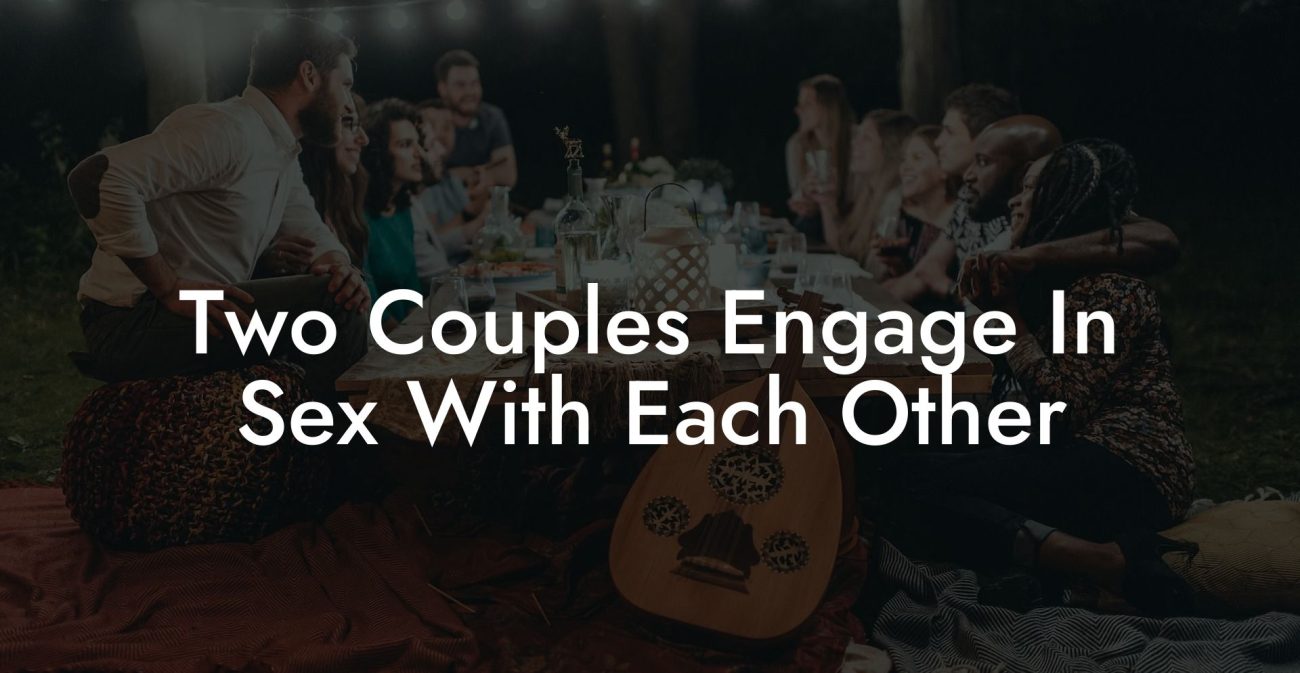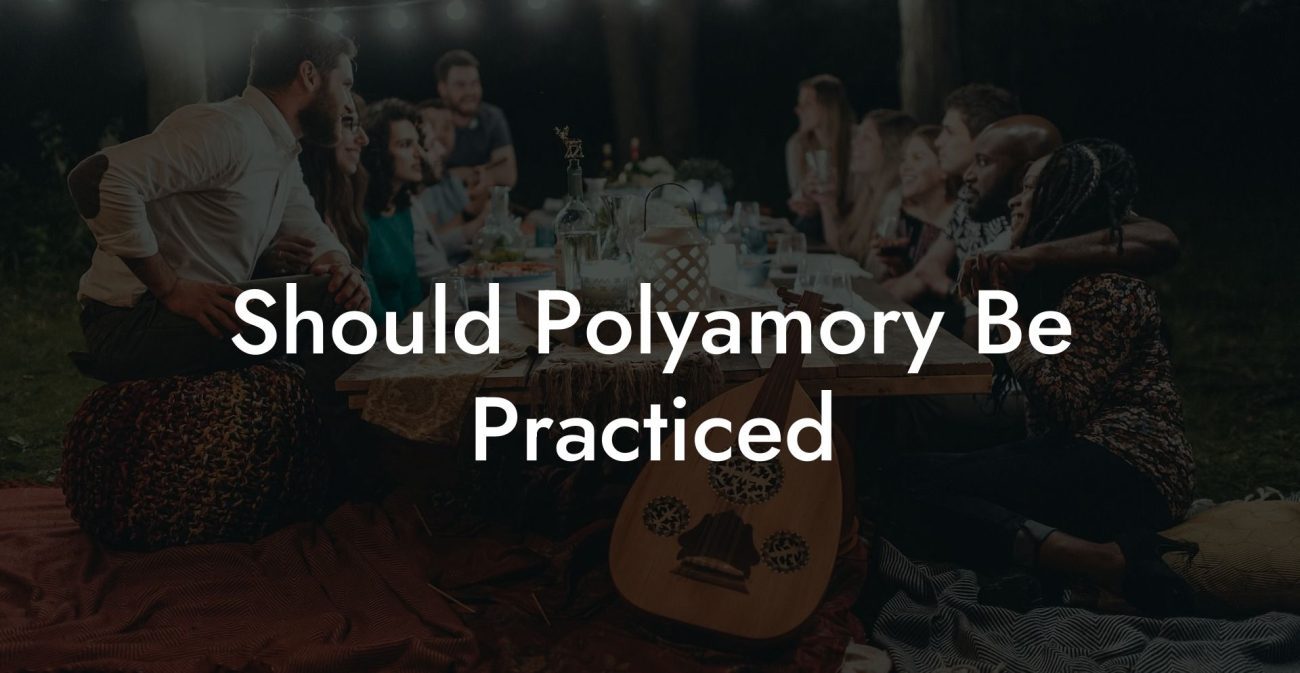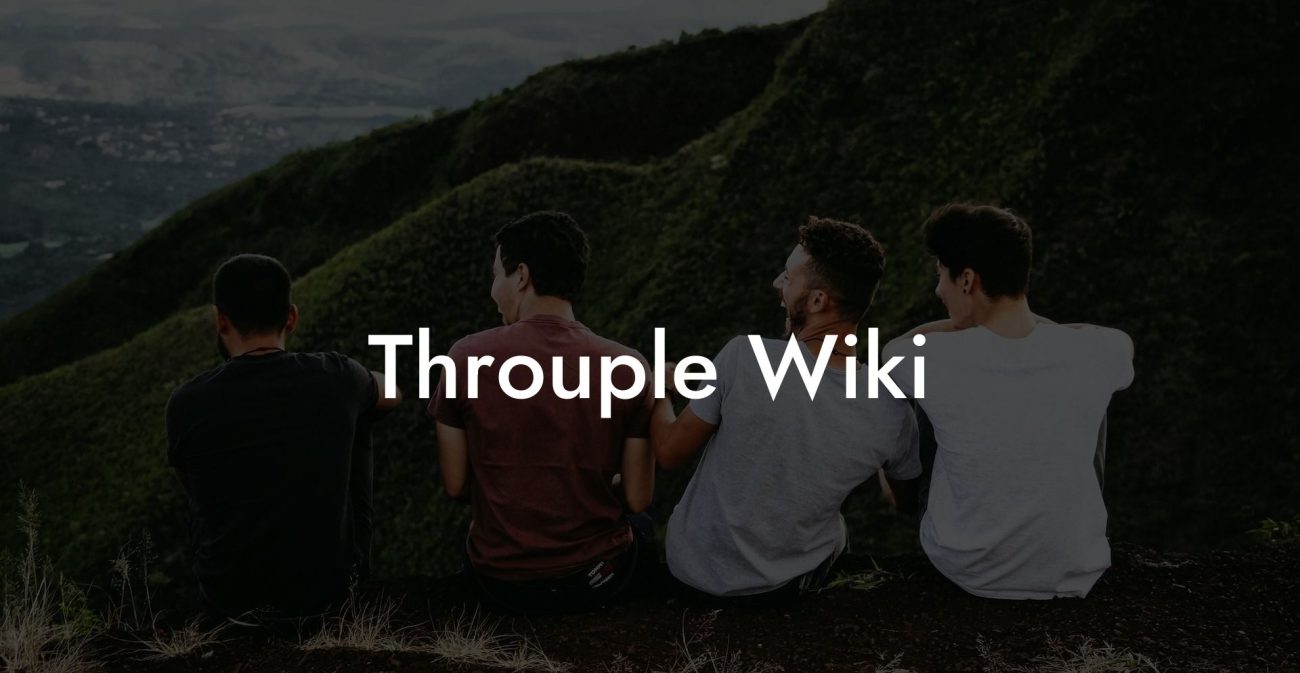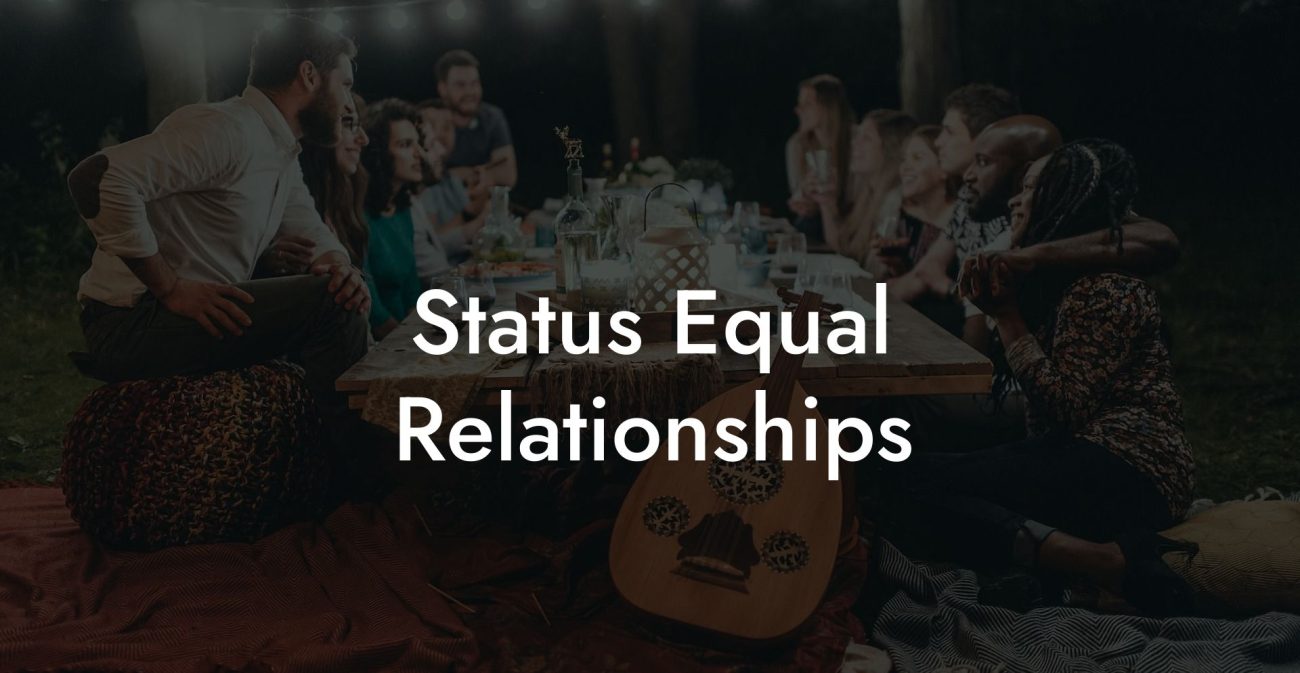Guide to Polygynous

As traditional relationship norms continue to evolve, alternative models such as polygyny have gained renewed attention. While often controversial and misunderstood, polygyny has deep cultural and historical roots in many societies and can offer unique benefits when practiced ethically. In this guide, we will explore the definition of polygyny, its historical and cultural context, the core principles that underpin healthy polygynous relationships, the benefits and challenges of the lifestyle, and practical tips for building, maintaining, and thriving in a polygynous union.
Have you ever wondered if monogamy is just a stupid little experiment? Open relationships, polyamory, relationship anarchy...find out which relationship dynamic suits you best with our one minute relationship test. See if you are just conforming to "societal norms". Reveal your truth >>
Quick Links to Useful Sections
- Understanding Polygyny
- Defining Polygyny
- Polygyny vs. Other Relationship Models
- Historical and Cultural Context
- Historical Roots of Polygyny
- Cultural Significance in Traditional Societies
- Modern Adaptations of Polygyny
- Core Principles of Healthy Polygynous Relationships
- Informed Consent and Transparency
- Mutual Respect and Equality
- Clear Boundaries and Structured Organization
- Flexibility and Adaptability
- Benefits of Polygynous Relationships
- Emotional and Social Richness
- Enhanced Personal Growth and Self-Awareness
- Economic and Practical Advantages
- Broader Perspectives on Love and Commitment
- Challenges of Polygynous Relationships and How to Overcome Them
- Managing Jealousy and Emotional Complexity
- Balancing Time and Responsibilities
- Navigating Legal and Social Challenges
- Ensuring Equality and Fairness
- Practical Tips for Success in Polygynous Relationships
- Enhance Communication Through Regular Check-Ins
- Create and Maintain Relationship Agreements
- Utilize Digital Tools for Organization
- Invest in Self-Care and Emotional Resilience
- Foster a Supportive Community
- Plan for Legal and Financial Security
- FAQ: Your Polygynous Relationships Questions Answered
Understanding Polygyny
Defining Polygyny
Polygyny is a marital arrangement in which one man is married to multiple women simultaneously. This form of marriage has been practiced in various cultures around the world for centuries and is often rooted in religious, economic, and social traditions. It is important to note that polygyny is a subset of polygamy, a broader term that encompasses any relationship structure involving multiple spouses. Unlike polyamory, which focuses on consensual, non-marital romantic and sexual relationships, polygyny typically involves formal, legally or religiously recognized unions.
In modern discussions, the term “polygynous” can refer not only to historical practices but also to contemporary arrangements where ethical standards, informed consent, and mutual respect are emphasized. Many advocates of ethical polygyny stress the importance of ensuring that all parties have agency, that power dynamics are balanced, and that the well-being of each partner is prioritized.
Polygyny vs. Other Relationship Models
It is useful to distinguish polygyny from other forms of non-monogamous relationships:
- Polyandry: A form of marriage where one woman is married to multiple men, which is much less common historically and culturally.
- Polyamory: Involves multiple consensual romantic or sexual relationships that do not necessarily include marriage or formal commitments.
- General Polygamy: A term that covers any form of plural marriage, including both polygyny and polyandry.
Understanding these distinctions is key to appreciating the specific challenges and opportunities presented by polygyny.
Historical and Cultural Context
Historical Roots of Polygyny
Polygyny has been practiced by numerous cultures throughout history. In many ancient societies, having multiple wives was associated with wealth, power, and social status. For example, in several African, Middle Eastern, and Asian cultures, polygyny was a socially accepted institution that helped to consolidate resources, forge alliances, and provide economic stability in agrarian or pastoral communities.
Religious doctrines also played a significant role in legitimizing polygyny. Early texts and traditions in Judaism, Islam, and certain branches of Christianity acknowledge or even prescribe the practice under specific circumstances. These historical precedents have left a lasting legacy on cultural attitudes toward polygyny, influencing how the practice is perceived in modern times.
Cultural Significance in Traditional Societies
In many societies where polygyny was traditionally practiced, the system was seen as a means to strengthen family bonds and ensure collective security. Extended family networks formed the backbone of social and economic life, with multiple wives and their children contributing to the household’s labor, education, and support. Such arrangements often promoted a sense of community and collective responsibility, even though they also sometimes led to issues of competition and jealousy.
EXPLORE OUR ETHICAL NON-MONOGAMY & OPEN RELATIONSHIP SHOP
👨💻👩💻 Digital Store (Instant Download)
🍆💦 Clothing Store (Worldwide Delivery Available)
Sharing Is Caring Daddy Cap (Black)
$39.99Sharing Is Caring Unisex T-Shirt (Black)
$29.99I Love Watching Pop Art T-Shirt (White)
$29.99Three Isn't a Crowd Unisex T-Shirt (Black)
$29.99Fuck Each Other Not The Planet Unisex T-Shirt (White)
$29.99Three Isn't a Crowd Unisex T-Shirt (White)
$29.99Multiple Lovers - Sharing Is Caring Unisex T-Shirt (Black)
$29.99Fuck Each Other Not The Planet Unisex T-Shirt (Black)
$29.99It's Not Cheating If He Watches T-Shirt (Black)
$29.99Real Men Share Pop Art T-Shirt (Black)
$29.99I Love Watching Pop Art T-Shirt (Black)
$29.99Real Men Share Pop Art T-Shirt (White)
$29.99Today, while the practice of polygyny has diminished in many parts of the world due to legal reforms and shifts in social norms, its historical impact continues to shape cultural narratives and inform debates about alternative family structures.
Modern Adaptations of Polygyny
In modern contexts, polygyny is often reexamined through the lens of ethical non-monogamy. Contemporary practitioners who advocate for ethical polygyny emphasize informed consent, equality among all partners, and a commitment to addressing historical power imbalances. These modern adaptations aim to retain the benefits of plural marriage—such as robust support networks and shared responsibilities—while mitigating the potential for exploitation and inequality.
Modern ethical polygyny also intersects with broader movements for social justice, gender equality, and alternative lifestyles. As society becomes more accepting of diverse relationship models, there is growing interest in exploring how traditional practices like polygyny can be reimagined to fit contemporary values.
Core Principles of Healthy Polygynous Relationships
Informed Consent and Transparency
At the heart of any ethical polygynous relationship is the principle of informed consent. Every individual involved must have a clear understanding of the relationship dynamics and voluntarily agree to participate. Transparency in communication is crucial from the outset, as it helps to establish trust and prevent misunderstandings.
Regular, open dialogue ensures that all partners can voice their needs, desires, and concerns. This approach not only fosters a supportive environment but also enables ongoing negotiation as circumstances evolve.
Mutual Respect and Equality
Historical critiques of polygyny have often focused on power imbalances and gender inequality. Modern practitioners of ethical polygyny work actively to promote equality among all partners. This means treating each individual with respect and ensuring that decisions are made collectively, rather than imposing hierarchical structures that privilege one voice over another.
Mutual respect is maintained by recognizing each partner’s unique contributions and by valuing their emotional and personal needs. Establishing systems for shared decision-making can help balance power dynamics and support a more harmonious relationship.
Clear Boundaries and Structured Organization
Given the complexity of managing multiple relationships, establishing clear boundaries is essential. Structured organization—through written agreements or regular meetings—can provide guidance on roles, responsibilities, and expectations. This clarity helps to minimize conflicts and ensures that everyone’s needs are addressed.
Whether it involves setting schedules for individual time, clarifying financial responsibilities, or outlining household duties, clear boundaries contribute significantly to the long-term sustainability of a polygynous union.
Flexibility and Adaptability
Relationships are dynamic, and a polygynous arrangement is no exception. Flexibility in adapting to changes—whether in personal growth, relationship dynamics, or external circumstances—is key to maintaining harmony. Regularly revisiting and revising agreements can help ensure that the relationship evolves in a way that is beneficial for all involved.
Embracing change and remaining open to renegotiation of boundaries allows partners to respond to new challenges and opportunities with empathy and creativity.
Benefits of Polygynous Relationships
Emotional and Social Richness
One of the most significant benefits of polygynous relationships is the potential for deep emotional and social support. With multiple wives contributing diverse perspectives, skills, and strengths, the household can become a resilient network of mutual care. Each partner can offer emotional comfort and practical support, enriching the lives of all involved.
This multi-layered support system can provide stability during challenging times and foster a sense of belonging and collective identity.
Enhanced Personal Growth and Self-Awareness
Engaging in multiple, meaningful relationships can serve as a catalyst for personal development. Navigating the complexities of polygyny encourages greater self-awareness, improved communication skills, and emotional maturity. The challenges faced within a plural marriage often prompt introspection and personal growth, enabling each partner to better understand their needs and aspirations.
Economic and Practical Advantages
Historically, polygyny has been linked to practical benefits such as shared household responsibilities, pooled resources, and enhanced economic stability. In modern contexts, these practical advantages can still be significant. By working together to manage finances, household chores, and other responsibilities, the partners in a polygynous relationship can achieve a level of efficiency and support that may be more difficult in smaller family structures.
Broader Perspectives on Love and Commitment
Polygyny challenges the conventional notion that love is a limited resource. Instead, it promotes the idea that love and commitment can be expansive and multifaceted. This broader perspective allows for the celebration of diverse forms of connection and the recognition that meaningful relationships can flourish in various configurations.
By redefining traditional boundaries, polygynous relationships open up possibilities for a richer and more inclusive understanding of love.
Challenges of Polygynous Relationships and How to Overcome Them
Managing Jealousy and Emotional Complexity
One of the primary challenges in a polygynous relationship is managing jealousy and the complex emotional dynamics that arise when multiple intimate bonds are involved. Feelings of insecurity or competition can surface, particularly if boundaries are not clearly defined. Addressing these emotions requires regular, honest communication and a commitment to self-reflection.
Strategies to overcome jealousy include holding regular emotional check-ins, seeking individual or group counseling, and practicing mindfulness techniques to build emotional resilience.
Balancing Time and Responsibilities
Coordinating the schedules and responsibilities of multiple partners can be daunting. Time management is crucial to ensure that each relationship receives adequate attention. This may involve using digital calendars, scheduling apps, or establishing set times for individual and group interactions.
Effective organization and a willingness to adapt to changing needs can help mitigate conflicts related to time management.
Navigating Legal and Social Challenges
Polygynous relationships often face legal and social scrutiny, particularly in societies that predominantly endorse monogamy. Issues such as legal recognition, inheritance, and spousal rights may create additional stress. Overcoming these challenges involves educating yourself about relevant laws, seeking legal counsel when necessary, and building supportive networks to help manage societal stigma.
Advocacy and community engagement can also play a role in shifting public perceptions and promoting legal reforms that protect alternative family structures.
Ensuring Equality and Fairness
Historically, polygyny has been criticized for reinforcing gender imbalances and power disparities. Modern ethical polygyny strives to overcome these issues by emphasizing equality and mutual respect among all partners. This requires deliberate efforts to dismantle traditional hierarchies and ensure that every voice is heard in decision-making processes.
Regular discussions, transparent agreements, and shared responsibilities are key to maintaining fairness within the relationship.
Practical Tips for Success in Polygynous Relationships
Enhance Communication Through Regular Check-Ins
Establish a routine for regular check-ins with all partners to discuss feelings, expectations, and any emerging issues. Whether through weekly meetings or daily conversations, consistent communication helps to maintain transparency and trust.
- Use group chats or video calls to ensure everyone is involved.
- Practice active listening and validate each partner’s perspective.
- Set aside time for both group and individual discussions.
Create and Maintain Relationship Agreements
Draft a relationship agreement that outlines the roles, responsibilities, and boundaries of each partner. This document can be revisited and updated regularly to reflect changes in the relationship dynamics.
- Include sections on financial arrangements, household responsibilities, and emotional boundaries.
- Ensure that every partner has input into the agreement.
- Use written or digital formats to keep a record for future reference.
Utilize Digital Tools for Organization
Leverage technology to streamline scheduling and communication. Shared calendars, scheduling apps, and relationship management tools can help coordinate activities and prevent conflicts.
- Create a shared calendar for all family and relationship events.
- Use apps that allow for task assignments and reminders.
- Regularly update your schedule and share it with all partners.
Invest in Self-Care and Emotional Resilience
Prioritize self-care to ensure that you remain emotionally and physically healthy. Engaging in activities that rejuvenate you—such as exercise, meditation, creative pursuits, or personal time—can enhance your capacity to contribute positively to your relationships.
- Set aside time each day or week solely for yourself.
- Encourage all partners to pursue individual interests and self-care routines.
- Consider professional counseling or therapy if emotional challenges become overwhelming.
Foster a Supportive Community
Connect with others who share similar experiences by joining online forums, local meet-ups, or support groups dedicated to ethical non-monogamy and polygynous relationships. Community support can provide practical advice, emotional reassurance, and a sense of belonging.
- Participate in discussions on platforms such as Reddit’s r/polyamory or specialized Facebook groups.
- Attend workshops and webinars on alternative relationship models.
- Share your experiences and learn from others in similar situations.
Plan for Legal and Financial Security
Although polygynous marriages are not legally recognized in many jurisdictions, taking steps to protect your interests is essential. Document financial arrangements, relationship agreements, and any other important details. Consult with legal professionals who specialize in family law and alternative relationships to understand your rights.
- Keep written records of all agreements and financial transactions.
- Seek legal advice to understand potential risks and protections.
- Educate yourself on local laws and any possible reforms.
FAQ: Your Polygynous Relationships Questions Answered
1. What is polygyny?
Polygyny is a form of marriage in which one man is married to multiple women simultaneously. It is a specific type of polygamy and has been practiced in various cultures for religious, social, and economic reasons.
2. How does ethical polygyny differ from traditional practices?
Ethical polygyny emphasizes informed consent, mutual respect, and equality among all partners, addressing historical power imbalances and ensuring that every individual’s needs are met. Traditional practices often involved hierarchical structures and limited agency, whereas ethical polygyny seeks to empower all participants.
3. What are the main benefits of polygynous relationships?
Benefits include a diverse emotional support network, shared economic and household responsibilities, opportunities for personal growth, and a broader perspective on love and commitment.
4. What challenges might arise in a polygynous relationship?
Common challenges include managing jealousy, balancing time and responsibilities, navigating legal and social hurdles, and ensuring fairness among partners. Open communication and clear boundaries are essential to overcoming these challenges.
5. How can communication be improved in a polygynous relationship?
Regular check-ins, active listening, and the use of digital communication tools are key to improving dialogue. Establishing both group and individual discussions helps ensure that all partners feel heard and supported.
6. What practical tools can help manage time and scheduling?
Utilizing shared calendars, scheduling apps, and digital task management tools can streamline coordination and prevent scheduling conflicts among multiple partners.
7. How do I protect my legal and financial interests in a polygynous union?
Documenting relationship agreements, keeping detailed financial records, and consulting with legal professionals specializing in family law are crucial steps to safeguard your rights and interests.
8. Where can I find additional resources and community support?
Online forums, specialized Facebook groups, podcasts such as "Multiamory" and "Polyamory Weekly," and books like "The Ethical Slut" and "More Than Two" are excellent resources for connecting with others and gathering practical advice.
Resources and Community Support: Your Next Steps in Polygynous Relationships
- "The Ethical Slut" by Dossie Easton & Janet Hardy – A groundbreaking guide to ethical non-monogamy that offers valuable insights into managing multiple relationships.
- "More Than Two" by Franklin Veaux & Eve Rickert – An in-depth resource on building and sustaining multiple relationships, with practical advice applicable to polygyny.
- Podcasts: Explore shows like "Multiamory" and "Polyamory Weekly" for discussions on ethical non-monogamy and personal experiences in plural relationships.
- Online Communities: Join forums such as r/polyamory or specialized Facebook groups dedicated to alternative relationship models.
- Workshops and Webinars: Attend events focused on ethical non-monogamy and alternative family structures to gain practical tips and connect with like-minded individuals.
By exploring these resources and integrating the tips provided in this guide, you can enhance your understanding of polygynous relationships and build a foundation for a respectful, balanced, and fulfilling partnership network. Embrace continuous learning, open communication, and self-care as you navigate the complexities of polygyny, and discover how ethical practices can transform your experience of love and commitment.
EXPLORE OUR ETHICAL NON-MONOGAMY & OPEN RELATIONSHIP SHOP
👨💻👩💻 Digital Store (Instant Download)
🍆💦 Clothing Store (Worldwide Delivery Available)
Three Isn't a Crowd Unisex T-Shirt (White)
$29.99Sharing Is Caring Daddy Cap (Black)
$39.99Real Men Share Pop Art T-Shirt (Black)
$29.99Fuck Each Other Not The Planet Unisex T-Shirt (White)
$29.99Sharing Is Caring Unisex T-Shirt (Black)
$29.99I Love Watching Pop Art T-Shirt (White)
$29.99Three Isn't a Crowd Unisex T-Shirt (Black)
$29.99It's Not Cheating If He Watches T-Shirt (Black)
$29.99Multiple Lovers - Sharing Is Caring Unisex T-Shirt (Black)
$29.99I Love Watching Pop Art T-Shirt (Black)
$29.99Fuck Each Other Not The Planet Unisex T-Shirt (Black)
$29.99Real Men Share Pop Art T-Shirt (White)
$29.99Lost & confused by all of the terms, types and seemingly made up 3 letter acronyms?? We've got you. Check out our Ethnical Non-Monogamy Dictionary >>
Useful Interruption: Not sure which relationship vibe fits you best? Take our Relationship Test, it’ll give you the real insight into your natural relationship style. Then, dive into our binge-worthy guides (from the tried-and-true to the “wait, that’s a thing?”) and find the perfect relationship type for your life:
- Monogamy
- Open Relationships
- Ethical Non-Monogamy
- Solo Polyamory
- Non-Hierarchical Polyamory
- Hierarchical Polyamory
- Relationship Anarchy
- Swinging
Now back to the main article but yeah take the test...


